Tankless vs Tank Water Heater: Which is Right for Your Lehi home?
When selecting a water heater for your residence in Lehi and the surrounding area, you have the option of either a tank or a tankless model. Let's delve into both types, taking into account factors such as cost-effectiveness, maintenance, installation, and lifespan. Armed with this information, you'll be equipped to make an informed choice. Feel free to seek further assistance if required!

What is a storage tank water heater and how it works?
Storage tank water heaters are a prevalent choice for both residential and commercial properties, offering a reliable and cost-effective solution. These water heaters function by storing water in a tank and heating it as per requirements. Heating elements or burners within the tank are responsible for raising the water temperature, which can then be easily accessed through faucets and other outlets. To prevent heat loss and sustain the desired temperature, the tank is equipped with insulation. Despite the growing popularity of tankless water heaters, storage tank water heaters continue to be a dependable choice for numerous individuals and businesses.


Benefits of a tank water heater
Tank water heaters offer many benefits:
They serve as a cost-effective alternative to tankless models, offering lower upfront acquisition and installation costs.
Their larger storage capacity ensures a consistent and uninterrupted supply of hot water for homeowners.
When compared to tankless models, tank water heaters experience fewer malfunctions, providing enhanced reliability. Furthermore, their lower maintenance costs lead to potential savings on repair expenses over time.

What are the drawbacks of a tank water heater?
Tank water heaters have a few drawbacks that should be considered:
ne such drawback is their space requirements, as they tend to occupy more room compared to tankless heaters. This can pose a challenge for households with limited space availability.
Another disadvantage of tank water heaters is their energy efficiency, particularly in older models. These models are generally less efficient, leading to higher utility bills over time. This factor should be taken into account when considering the long-term costs associated with operating a tank water heater.
Tank water heaters have a limited lifespan, typically ranging from 8 to 12 years. In contrast, tankless systems can last up to 20 years, making them a more durable option. Choosing a tankless heater can potentially provide extended reliability and reduce the need for frequent replacements.
Running out of hot water can be an inconvenience with tank water heaters. Once the hot water in the tank is depleted, it can take a considerable amount of time for the tank to reheat, causing inconveniences, especially in homes with high hot water usage or multiple users. This delay in reheat time should be taken into consideration to ensure a consistent supply of hot water.
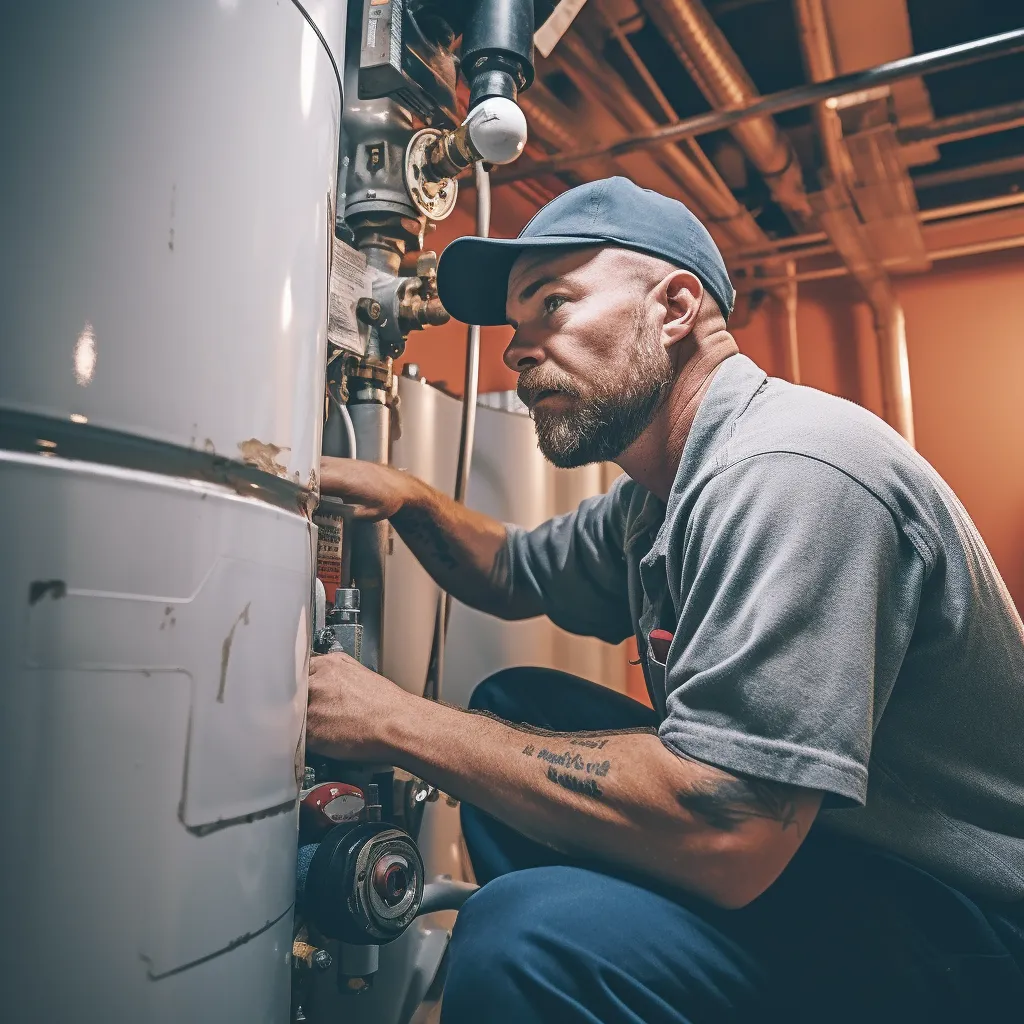
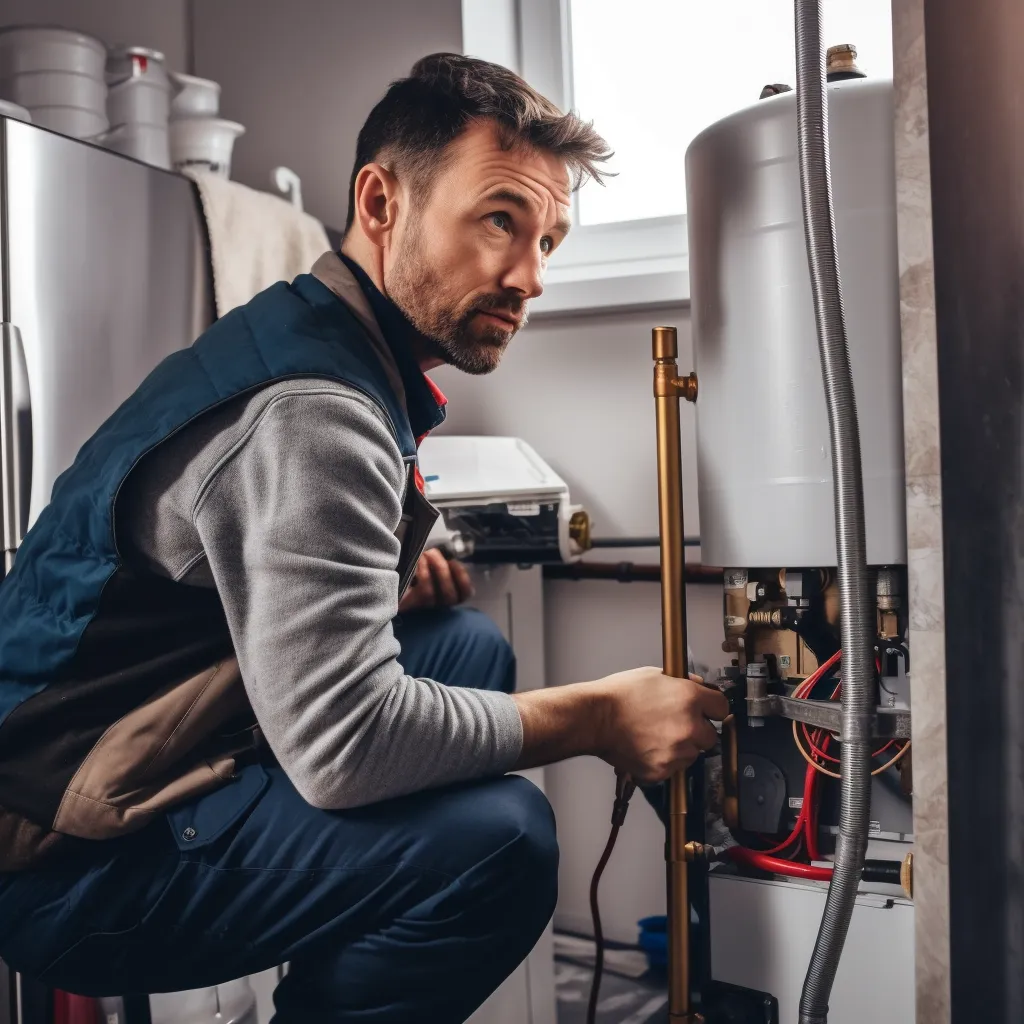
What is a tankless water heater and how does it work?
Tankless hot water heaters offer a convenient solution for obtaining hot water whenever you need it. Unlike conventional models, these units heat water as it moves through the system, doing away with the requirement for a large storage tank. With this innovative technology, you can experience the luxury of instant hot water at your fingertips. Here's a breakdown of their operation: Upon activating the hot water faucet, the unit draws in cold water, which then travels through a heat exchanger. Swiftly, the heat exchanger raises the temperature of the water, enabling you to receive hot water directly from the faucet without any wait time.

What are the benefits of a tankless water heater?
Tankless water heaters have become increasingly popular among homeowners across the country, thanks to their wide range of advantages, including:
Energy efficiency: Tankless water heaters help reduce utility bills and provide significant energy savings.
On-demand hot water: With tankless water heaters, you can enjoy a continuous supply of hot water whenever you need it.
Space-saving design: Compared to traditional tank water heaters, tankless models take up much less space, making them an ideal choice for homeowners with limited space.
Longer lifespan: Tankless water heaters are known for their durability and typically have a lifespan of 15-20 years, which is longer than traditional tank models.

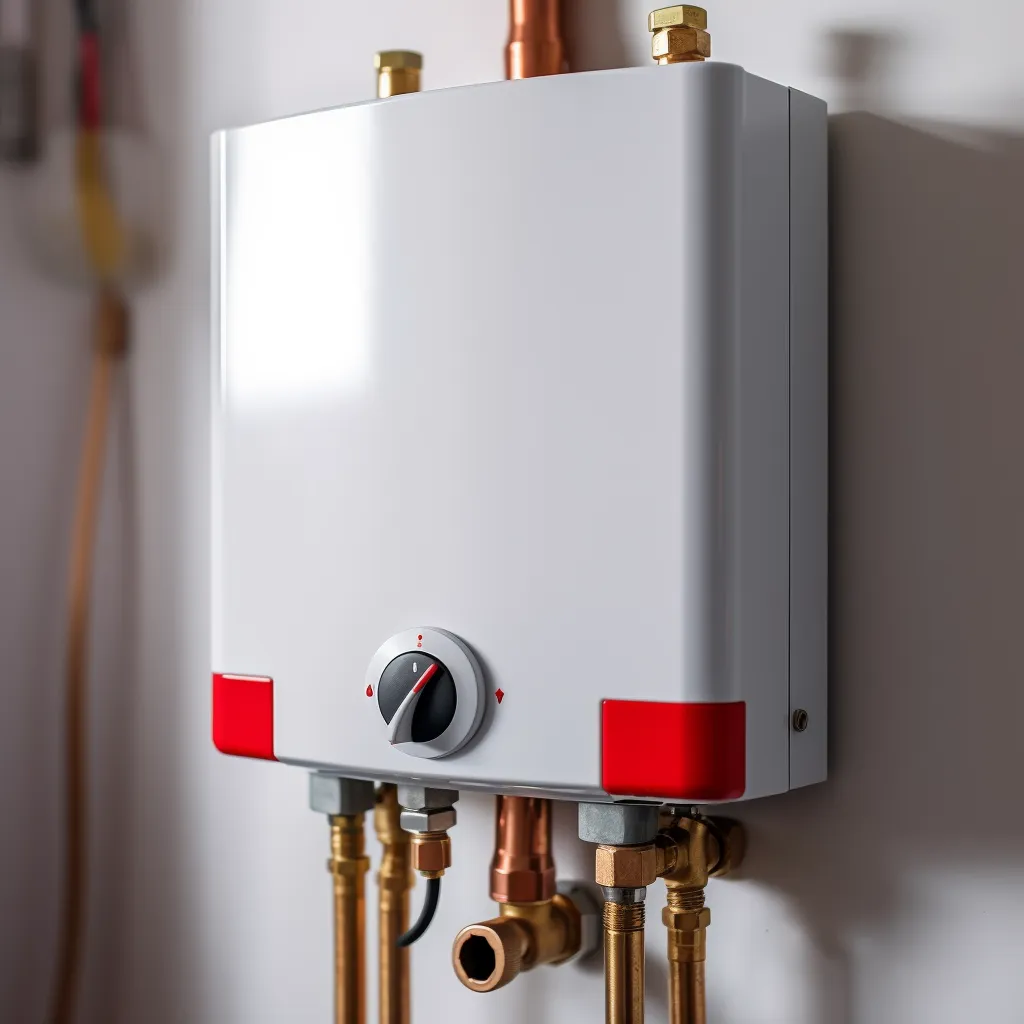
What are the disadvantages of a tankless water heater?
Tankless water heaters have some drawbacks that should be taken into consideration:
One of the downsides is the higher initial expense compared to traditional tank water heaters.
There might be limitations on the flow rate, particularly when multiple hot water outlets are utilized simultaneously.
Another factor to consider is the specialized installation and maintenance requirements, often necessitating the assistance of professionals.
There is a possibility of encountering the "cold water sandwich effect," where a brief burst of cold water occurs between instances of hot water usage.
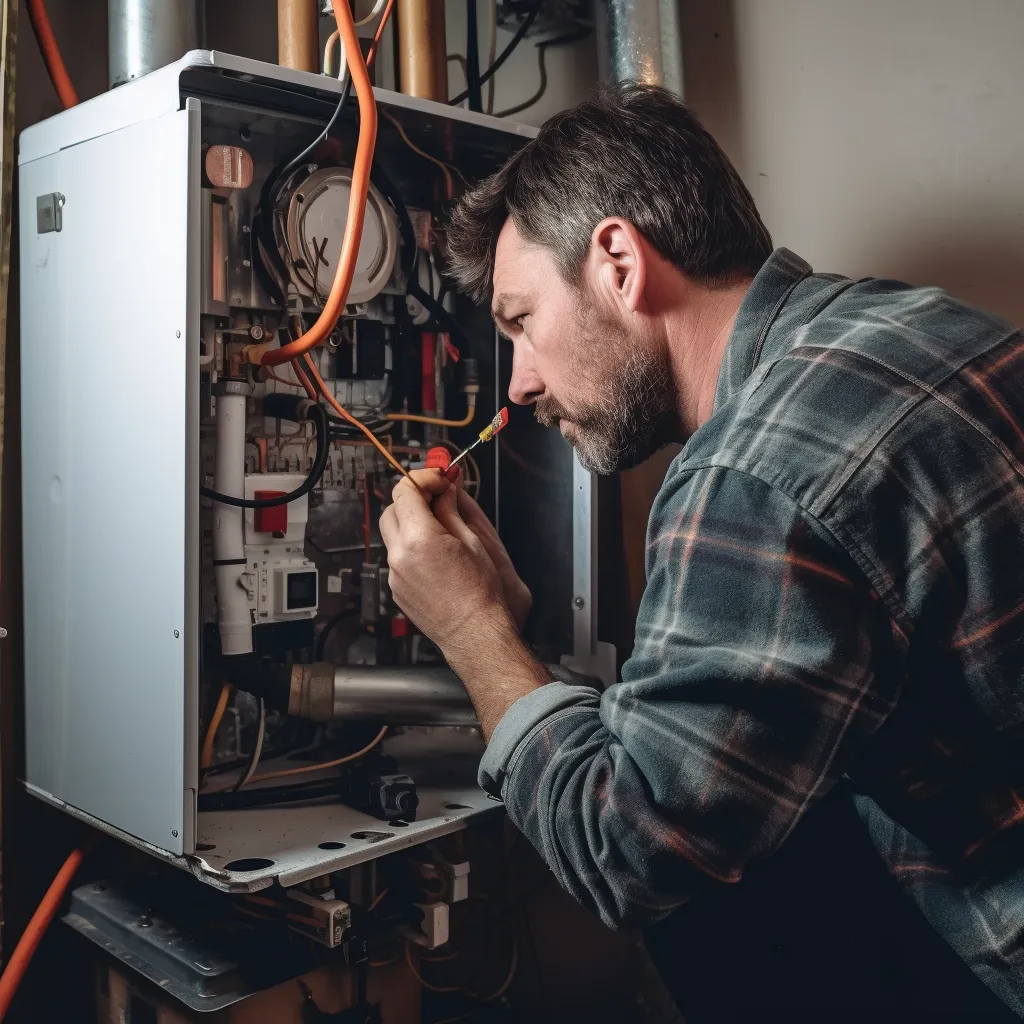
Are storage tank water heaters energy-efficient?
Traditional water heaters with storage tanks have a reputation for being energy-intensive due to their constant heating of water, even when not required, leading to reduced energy efficiency. Nonetheless, modern tank models have made significant advancements in insulation and heating capabilities, leading to enhanced energy conservation. Although they may not be considered the most eco-friendly alternative, they continue to be a dependable and convenient option for numerous households.
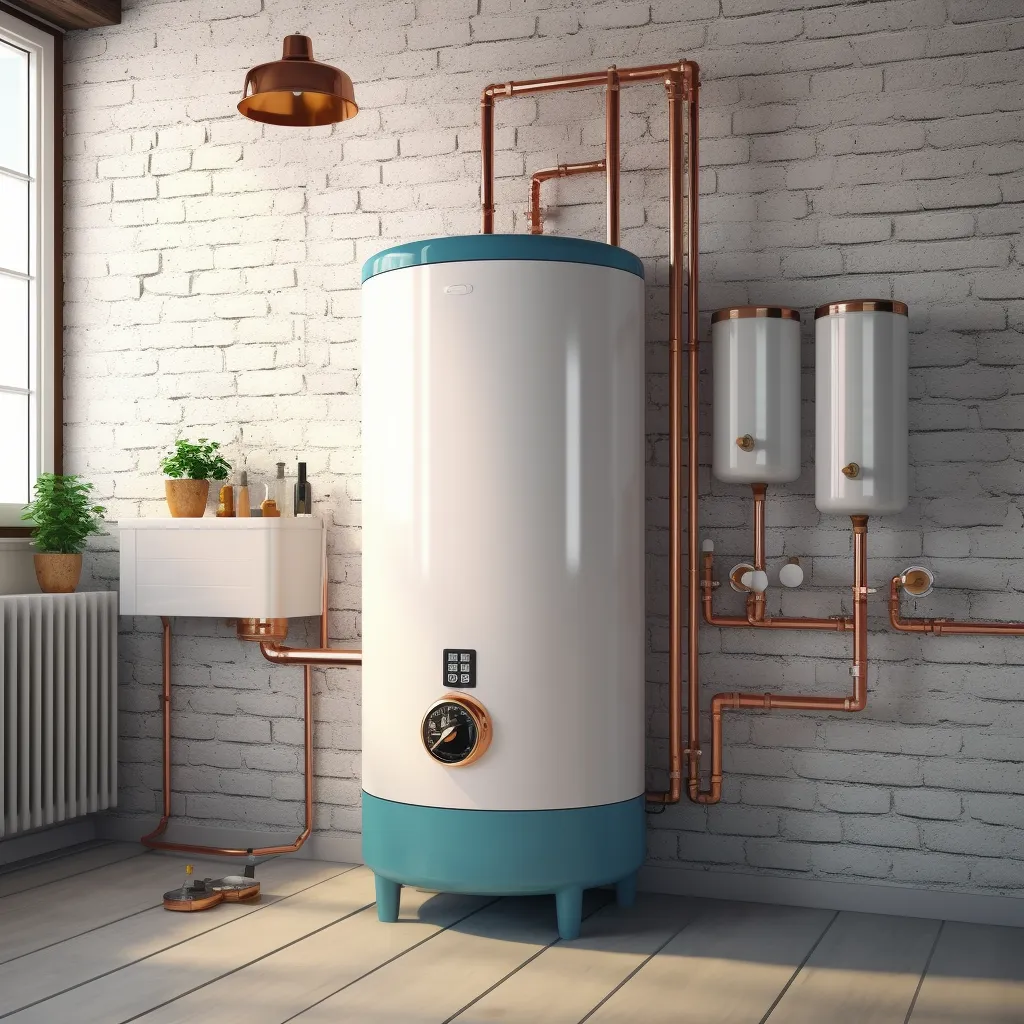
Are tankless water heaters energy-efficient?
Tankless water heaters have gained significant popularity thanks to their energy-saving features and cost-effectiveness. Compared to conventional tank-based models, they can be as much as 34% more efficient in terms of energy consumption. The key to their efficiency lies in their ability to heat water only when needed, eliminating the need for constant heating. This not only results in reduced energy usage but also leads to long-term cost savings, making tankless water heaters an ideal and pragmatic choice for homeowners.

Cost to buy and install
a tank water heater
When it comes to tank water heaters, the cost can differ depending on their size and type. Typically, prices can range from $500 to $2,000. However, if you choose a more advanced model with extra features, the overall expense may increase. Keep in mind that installation costs can go up to $1,500, influenced by local labor rates and plumbing conditions specific to your home. It's essential to note that a dedicated electrical circuit and a dependable gas line are necessary requirements for installation. Furthermore, selecting the right tank size that aligns with your household's hot water demands is crucial to ensure an ample supply for everyone in your home.

Cost to buy and install
a tankless water heater
Tankless water heaters come at a higher price compared to traditional models, typically falling between $1,000 and $3,000. When it comes to installation, costs can vary from $500 to $2,000 depending on factors like your home's plumbing system and local labor rates. Unlike conventional water heaters, tankless units don't rely on a storage tank and instead require a larger gas line and a power source. To support the increased energy demand of a tankless system, it's essential to ensure that your home's infrastructure is capable. Moreover, selecting the right unit size based on your household's hot water requirements is crucial for achieving optimal performance.


Common storage tank water heater maintenance issues
With storage tank water heaters, there are several common maintenance issues that need to be addressed:
One of the main concerns is a leaking tank, which can not only cause water damage but also lead to costly repairs. To prevent further complications, it is crucial to conduct regular inspections to promptly identify and address any leaks that may arise.
Another issue that can affect the efficiency and longevity of storage tank water heaters is corrosion. Corrosion can occur within the tank or its components, potentially resulting in expensive repairs. By taking proper precautions and addressing any signs of corrosion early on, you can maintain the efficiency of your system and avoid unnecessary expenses.
Over time, sediment can build up inside the tank, which can diminish the heating efficiency of the water heater and even cause damage to plumbing fixtures. Regular maintenance, including flushing the tank to remove sediment buildup, is necessary to ensure optimal performance and prevent potential problems.
The installation of tank water heaters should always be done correctly to avoid safety hazards. Improper installation can lead to gas leaks or electrical shorts, posing a risk to both property and occupants. To guarantee the utmost safety, it is essential to enlist the services of a professional plumber who can perform the installation and ensure that all necessary safety measures are followed.

Common tankless water heater maintenance issues
Despite their advantages, tankless water heaters are not exempt from maintenance concerns:
Similar to tank-based systems, sediment accumulation can occur, resulting in diminished efficiency and potential harm.
Hard water can contribute to scale buildup within the heater, leading to reduced performance and a shortened lifespan. Therefore, it is crucial to follow the manufacturer's recommended descaling procedures to address this issue effectively.
Another aspect to consider is the higher electrical capacity that tankless water heaters demand in comparison to traditional heaters.
These units typically require a larger gas line. Ensuring a secure installation and leak-free gas line is vital for maintaining proper functionality and prioritizing safety.
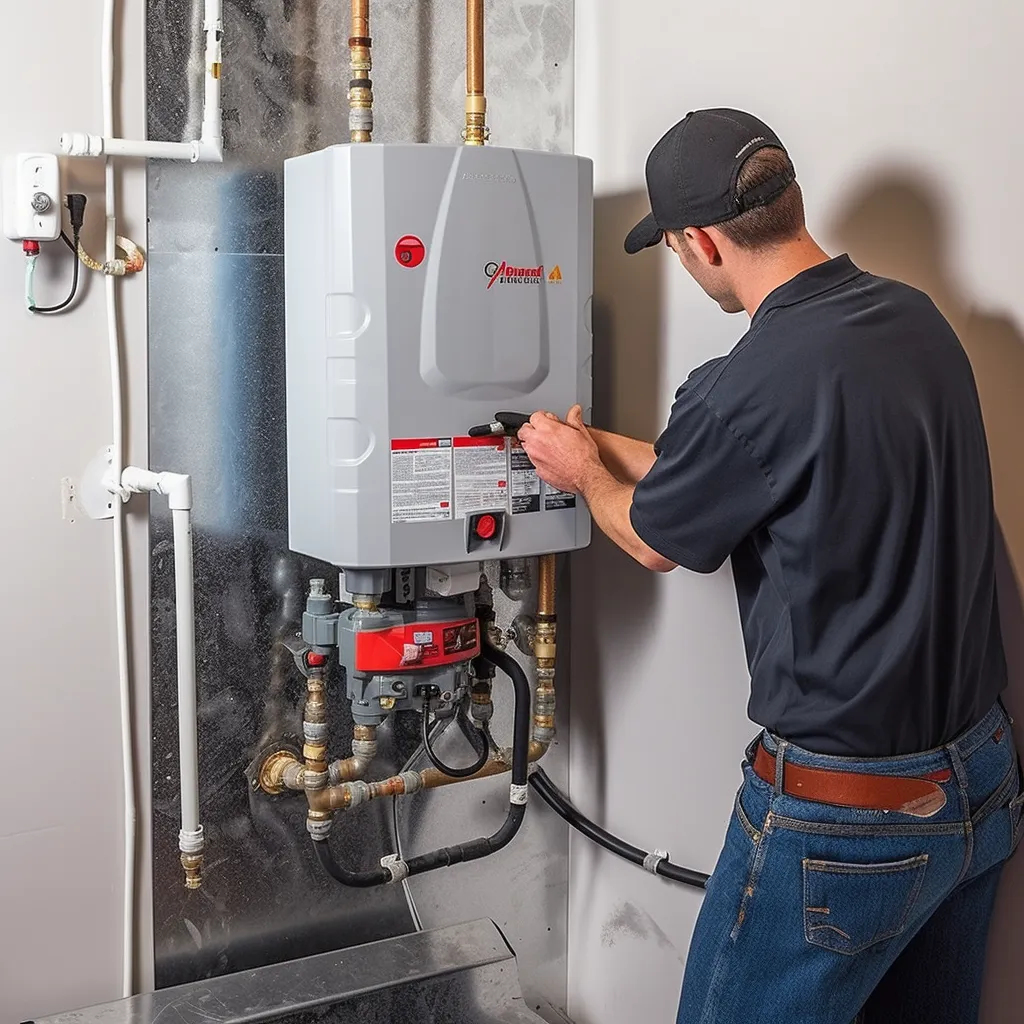
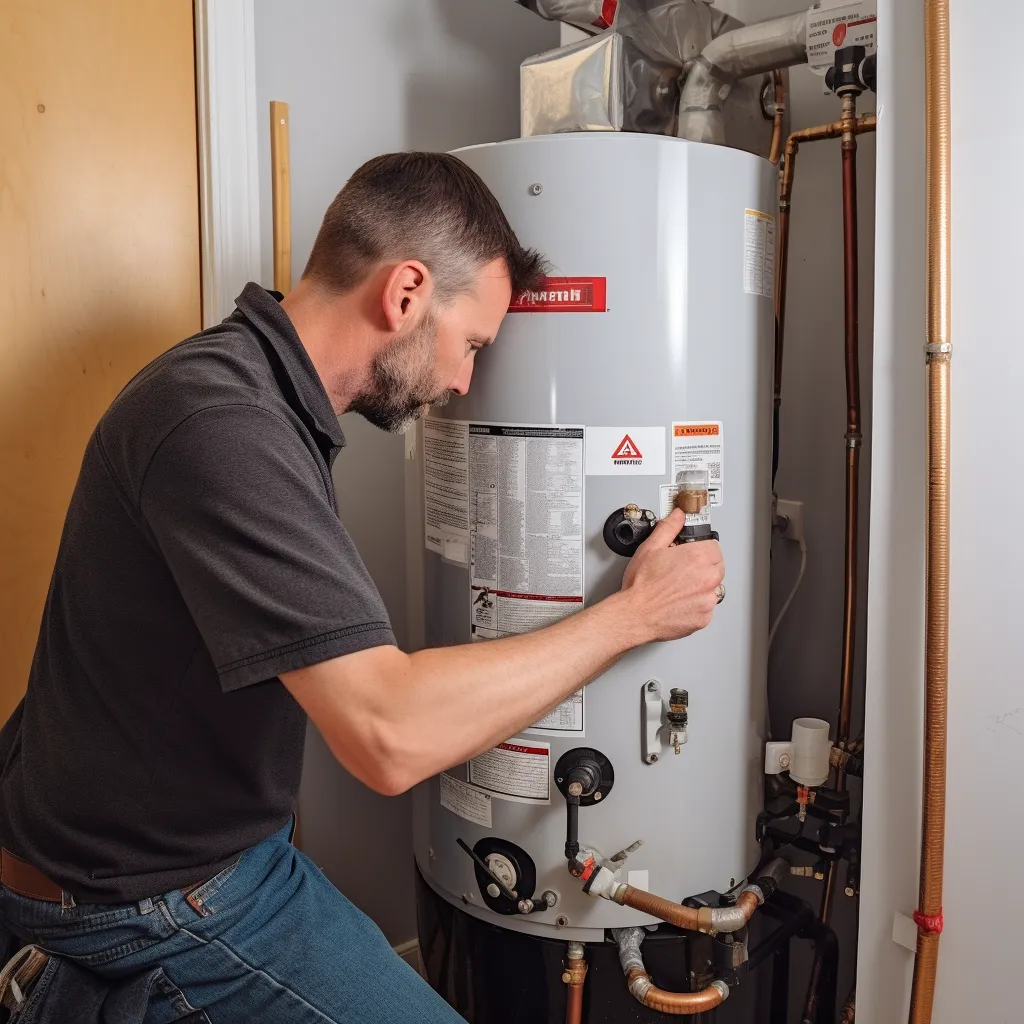
What is the lifespan of a tank water heater?
Tank water heaters have a typical lifespan of 8-12 years, although this can vary depending on factors like usage, quality, and maintenance. It's important to keep an eye out for certain signs that may indicate the end of your tank water heater's lifespan. Rust-colored water, leaks, a decrease in temperature, or unusual sounds are all indicators that it may be time to consider a replacement. If you notice any of these signs, it is advisable to seek the assistance of a professional.
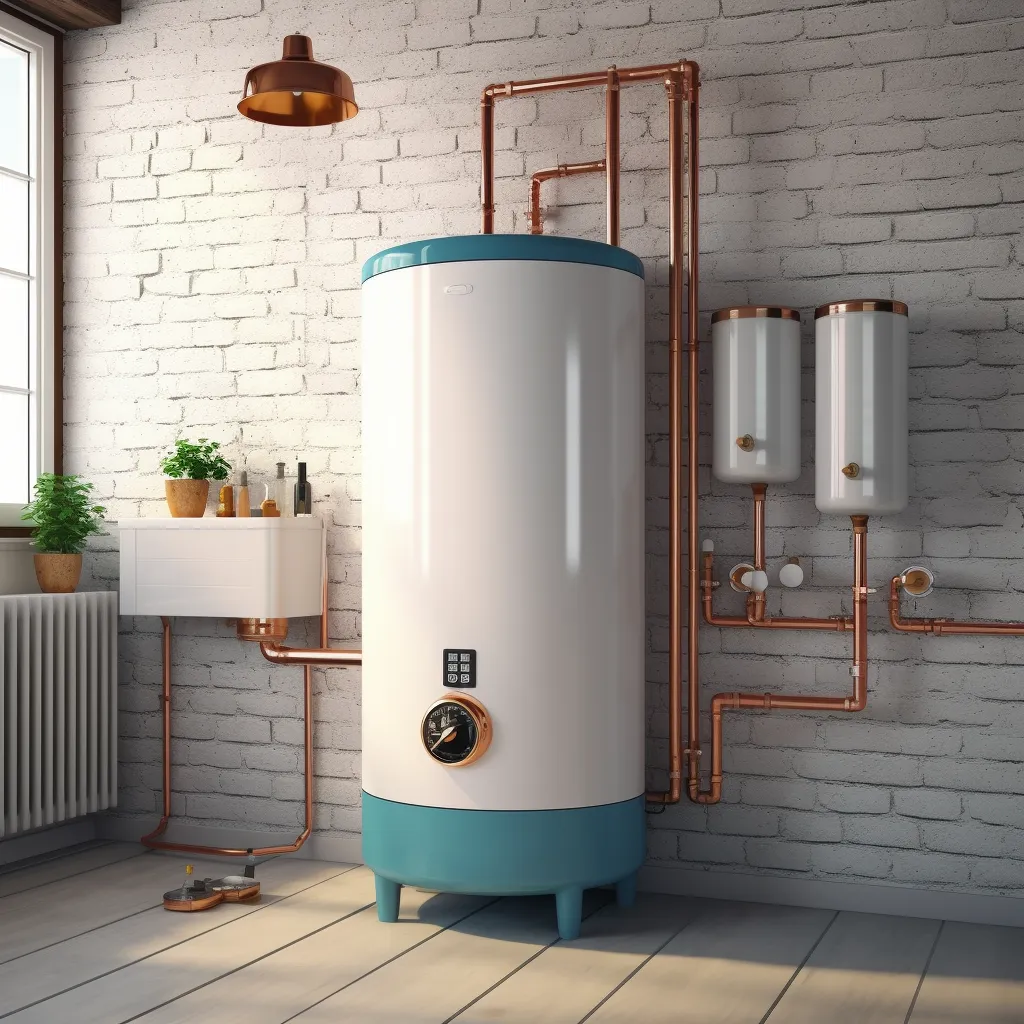
What is the lifespan
of a tankless water heater?
Tankless water heaters are an excellent choice for those seeking a budget-friendly and durable option. These units boast an impressive average lifespan of 15-20 years, making them a wise long-term investment. The demand for tankless water heaters is on the rise, and with continuous technological advancements, their performance is only expected to improve.


Gas vs electric water heaters
When selecting a water heater, it's essential to take into account the available options: gas or electric. Gas water heaters are known for their faster water heating capabilities and lower operational expenses. However, it's important to note that they require regular maintenance and access to a gas line. On the other hand, electric water heaters are comparatively easier to install but might have higher operating costs and slower heating times. Ultimately, the choice between gas and electric models should be based on your specific requirements and personal preferences.
How to decide if a tankless or a tank water heater
is right for you
When deciding between a tankless or tank water heater, it's important to consider several factors:
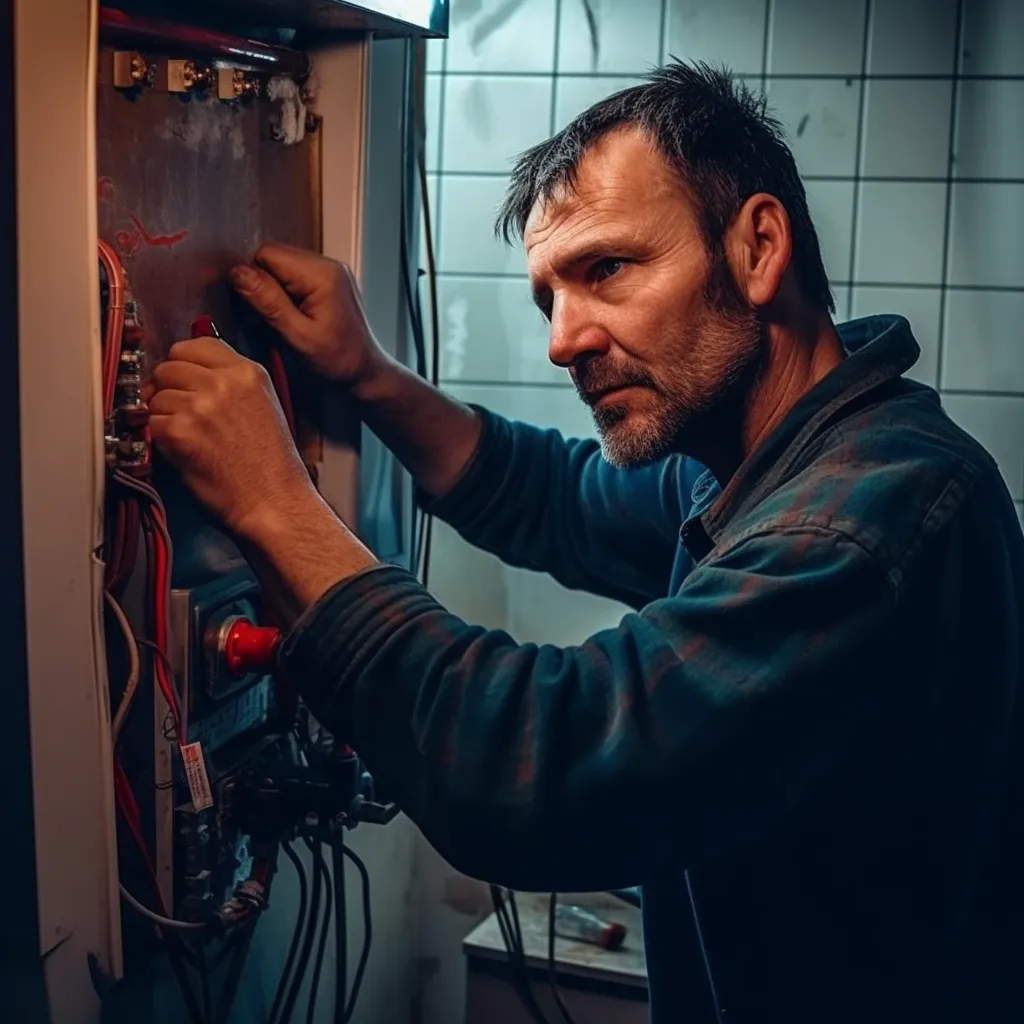
One key consideration is the upfront cost, as tankless water heaters generally have a higher initial investment compared to traditional tank models. Additionally, take into account the installation and maintenance expenses associated with each option.
Another important factor to evaluate is your hot water usage needs. Tankless water heaters are particularly suitable for situations that require a continuous supply of hot water. On the other hand, if your hot water usage is relatively low and intermittent, a tank water heater may be sufficient for your needs.
Comparing the energy efficiency ratings of both tankless and tank water heaters is crucial to determine which one can provide better energy savings in the long run. This evaluation will help you make an informed decision based on your specific requirements and priorities.
The climate in your area is another factor to consider. Tankless water heaters are designed to handle extreme temperatures effectively, making them a suitable choice for regions with varying weather conditions. In contrast, tank water heaters are often more appropriate for milder climates.
Take into account the availability of space. If you have limited space in your home or property, tankless water heaters offer an advantage as they require less physical space compared to tank models. This can be a significant consideration, especially for smaller residences or properties with space constraints.

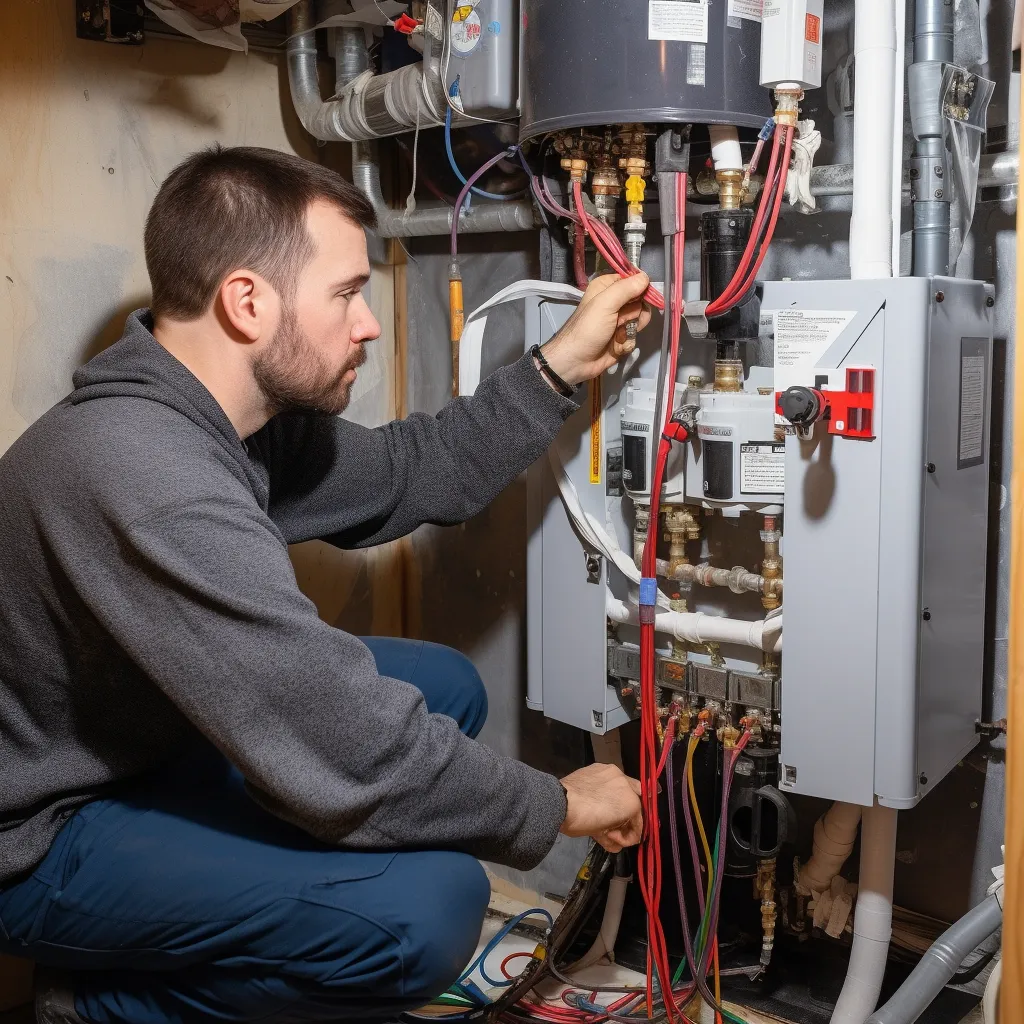
Is it important to hire a licensed professional?
When it comes to installing a new water heater, it is highly recommended to enlist the services of a licensed professional. By doing so, you can ensure that the installation adheres to all relevant building codes and regulations while also benefiting from expert advice regarding the most suitable type and size of water heater for your specific requirements. Hiring a professional not only mitigates the risk of potential hazards but also grants you the peace of mind that comes with knowing the installation is being handled competently and safely.

Researching tankless vs tank water heaters
is important
When selecting a water heater for your residence, one crucial choice to make is between a tank or a tankless model. To ensure a well-informed decision, take into account your specific requirements, budget, and installation needs. Extensive research and evaluation of these factors are essential before arriving at a conclusion. The installation of a new water heater can bring about notable benefits for your home, such as lower energy costs and the convenience of hot water on demand. Make sure to thoroughly examine various unit types, including their energy efficiency ratings, in order to make a knowledgeable selection. We wish you the best of luck as you navigate through the decision-making process!
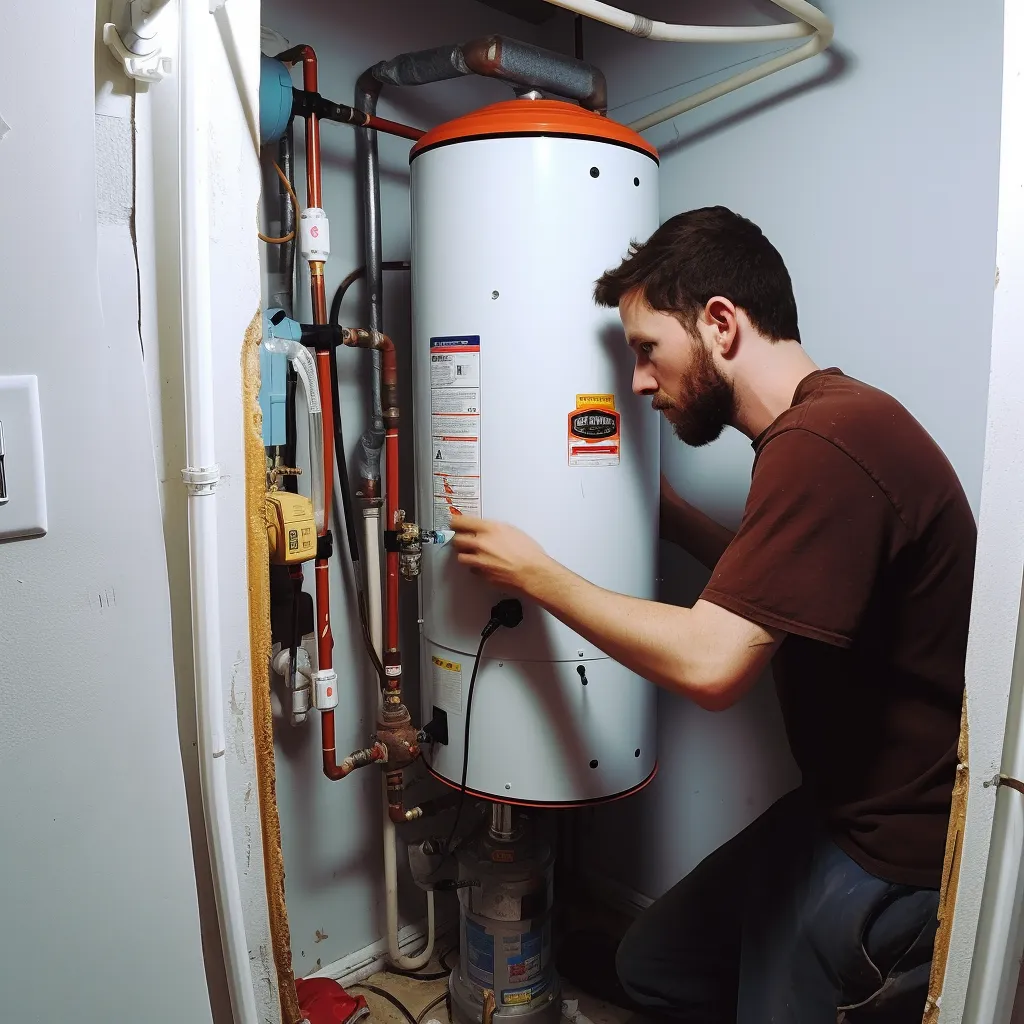
Contact Us
GET IN FULL TOUCH
PHONE: (801) 877-1421
EMAIL:
nathan@waterheaterlehi.com
Solutions Home Services
74 W 1625 S, Lehi, UT 84043
